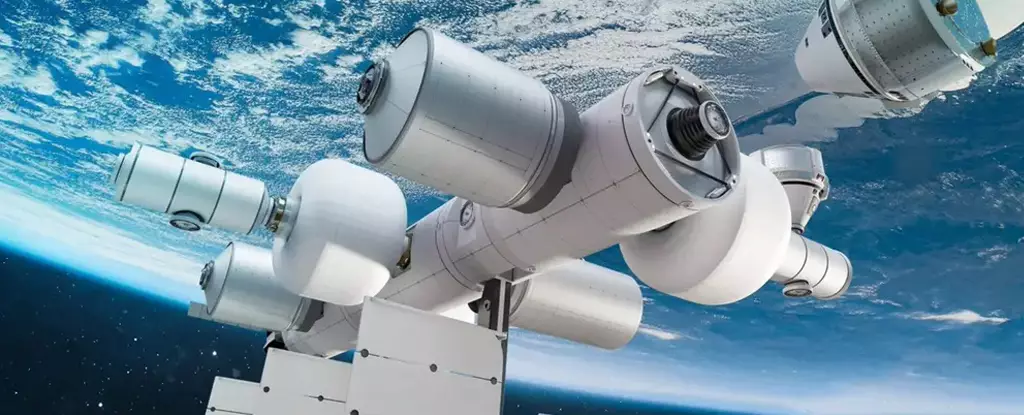

The International Space Station (ISS) is facing an uncertain future, and NASA is actively investing in potential replacements. One such candidate is Orbital Reef, a project developed as a joint venture between Blue Origin, owned by Jeff Bezos, and Sierra Space. Recently, NASA announced that Orbital Reef has successfully passed four critical milestones, showcasing its advanced technology. These milestones include a system to recycle astronauts’ urine, demonstrating the station’s capability to support human life in space.
Orbital Reef’s regenerative system plays a key role in providing essential resources such as clean air and water for individuals aboard the space station. NASA reported that the system has undergone rigorous testing to ensure its ability to remove impurities from the air, recycle urine, and maintain water tanks. This level of sustainability is crucial for long-duration space missions, where resources are limited and need to be efficiently managed.
Similar to the ISS, Orbital Reef’s regenerative system can convert waste products like urine into drinking water. While the concept may seem unappealing, former ISS Commander Chris Hadfield emphasized that the resulting water is purer than what most people drink on Earth. This innovative technology not only conserves valuable resources in space but also reduces the costs associated with launching water from Earth to sustain astronauts.
NASA has awarded Blue Origin and Sierra Space a substantial amount of funding, totaling $172 million, to support the development of commercialized space stations in low-Earth orbit. These stations are intended to serve as successors to the ISS, providing accommodations for NASA astronauts, as well as opening up opportunities for space tourism. The transition to commercially owned space stations aligns with NASA’s broader goal of shifting its focus and funding towards other space exploration priorities.
With the ISS facing maintenance challenges and nearing the end of its operational life, NASA is looking ahead to its ambitious Artemis missions, aimed at establishing a permanent human presence on the Moon. By redirecting resources from the ISS program, NASA can allocate funding towards sending astronauts to Mars and beyond. The agency’s collaboration with private companies on space station development reflects a strategic move towards fostering competition, lowering costs, and meeting the growing demand for space exploration opportunities.
While the ISS is set to continue its operations until at least 2030, NASA is actively working towards the transition to privately owned space stations like Orbital Reef. This paradigm shift signifies a new era in space exploration, where commercial entities play a pivotal role in shaping the future of human presence in space. As NASA navigates the complexities of space station maintenance and funding allocation, the prospects of advanced technologies, sustainable practices, and exciting opportunities for space travelers are on the horizon.
The battle against antimicrobial resistance (AMR) has become one of the paramount public health challenges…
In our relentless pursuit of healthier lifestyles, the craze for sugar alternatives has become a…
As climate change continues to wreak havoc globally, Africa's vulnerability makes it imperative for nations…
The realm of quantum technology has long been hailed as the next frontier in scientific…
The fascination surrounding black holes often breeds misconceptions, particularly the idea that they obliterate not…
In a groundbreaking endeavor, researchers at Trinity College Dublin have merged the worlds of chemistry…
This website uses cookies.